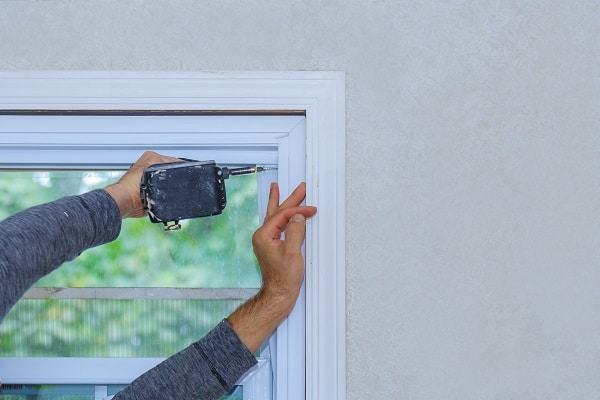Living in the big cities is quite demanding. Of many things you have to compromise with, the sound is one of them! The loud honking from the traffic, the noise from the construction sites, or the vehicles zooming by, the noises infiltrate into your private spaces more often than you like. As usual, we adjust our life around the bustling city life. But you don’t have to compromise anymore! Here are a few tips that will significantly reduce (if not eliminate) the outdoor noises and grant you inner peace as well as peace to your body!
Contents
Invest In Soundproof Windows

Soundproof windows are the best when you want an efficient curbing of the noise at the same price as replacing them takes. The inserts are placed inside your existing windows, entrapping a small area with air between the glass.
Most of the companies use laminated glasses. These increase the reduction of the sounds transmitted by them with the intervening layer of plastic. The thicker the window panes are, the better they are at reducing the noise.
Thicker windows increase efficiency to around 90% or raise STC to 53, a much higher value than dual or triple-pane windows.
Installing Insert In Front Of Your Single Pane Windows

If you have single-pane windows, then the inserts bring the decibels down by several units more than when you insert in the double-pane because the STC of double panes is initially larger. An addition of inserts will bring little to insignificant effect to the STC. However, when compared with the single pane ones, the STC value increases significantly because of inserts.
Replace Single-Pane Windows With Double Or Triple-Pane Ones

The alternative resort is to replace all your single-pane windows with double or triple-pane windows. However, the noise reduction may not exceed 10-20% or a maximum of 50%, depending on the type of glasses you use. The result is because, as the sound travels through different media (solid glass-gaseous air-solid glass), the noise intensity dampens, thus making it seem a lot quieter.
This is beneficial if you do not experience loud sound issues except for occasional noises that are moderate. If your house is older than twenty years, the glasses are bound to be a single pane. Replacing them is an investment you must make if you want to reduce the noise.
Seal The Gaps

Every gap is a possible source from where the noise can come in. Filling the gaps with caulk (a noise-proof latex-based sealant) reduces the sound transmission without interfering with the purpose of the windows.
By far, this is the cheapest step you can take, as the other two listed above require a heavy investment.
Curtains To Your Rescue

You might have noticed how sound echoes in an empty house. If you fill the windows with upholsteries, the echo will die out. The furniture and curtain can absorb noise. Hanging curtains that can dampen the sound are heavy fabrics that are capable of absorbing sounds. However, the effect is not too high but is noticeable.
Insulation On Walls

Though windows owe a major contribution in letting in the noises, different types of walls have a different power to transmit sounds, for example, stones more than woods. There are panels available that muffle the sound to a large extent.
The General Effect Of Loud Sounds

The sound is bearable, but when they become noises, it results in a loss of peace of mind and body.
Exposure to excess noise levels is a primary reason for many cardiovascular diseases, hypertension, and noise-induced hearing loss. Excessive noise can also cause sleep disturbances, bringing many other health issues like constant fatigue and headaches.
The environmental noises won’t cease. With advancing technology touching greater peaks every day, the noise level is increasing. However, the alarming rates at which they are interfering with people’s lives and health are rising concerns that need to be addressed.
The Number Recommended Vs. Our Daily Life

The WHO (World Health Organization) recommends several qualitative data about the maximum permissible noise exposure, based on several experiments and data collected. For example, it limits the maximum day-time noise near housing to be 50 dB, while in hospitals, the noise should not exceed 40 dB at night.
A general conversation amounts to 60 dB, traffic amounts to 85 dB, and machines like a blow dryer, blender, vacuum, etc., can be up to 80 dB noise. Other sounds that are too loud are drills which make 95 dB, construction work which may go beyond 120 dB.
Continuous exposure to noise above 85 dB may result in the side effects of noise pollution. People who are sensitive to sounds like older adults, babies, and pets must not be exposed to loud noises.
Conclusion
Noise is one of the major contributors to air pollution. It impacts the health of the general public. Following simple steps may result in lowering the sound levels inside your homes. Though a bit costlier, it is worth more than bearing lifelong consequences of loud noises.



